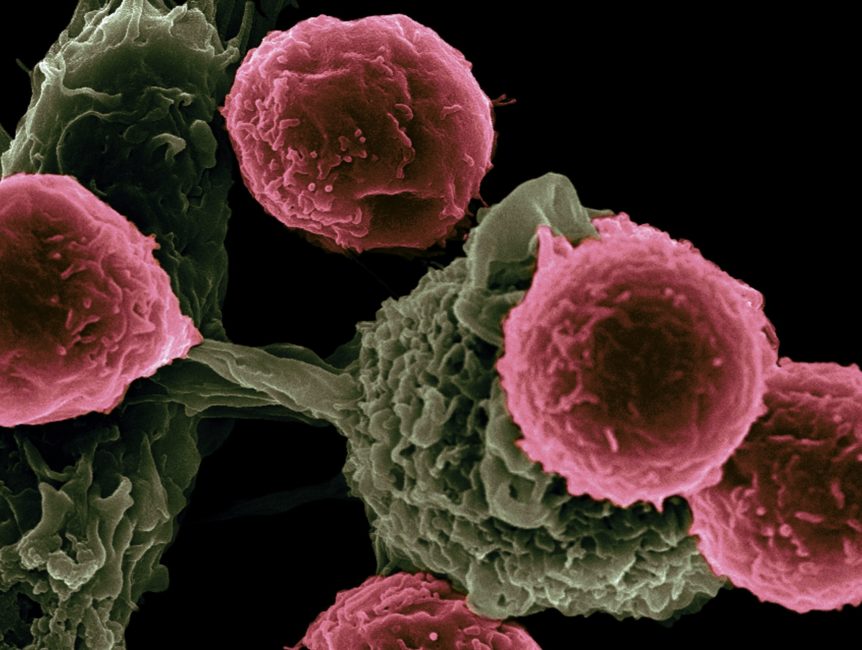March 27, 2023: “Novartis announced positive topline results from an interim analysis of NATALEE, a Phase III trial evaluating Kisqali® (ribociclib) plus endocrine therapy (ET) in a broad population of patients with hormone receptor-positive/human epidermal growth factor receptor 2-negative (HR+/HER2-) early breast cancer (EBC) at risk of recurrence.
The Independent Data Monitoring Committee recommended stopping the trial early as the primary endpoint of invasive disease-free survival (iDFS) has been met.
Kisqali plus ET significantly reduced the risk of disease recurrence, compared to standard adjuvant ET alone, with consistent benefit in patients with stage II and stage III EBC regardless of nodal involvement.
“While most patients are diagnosed and treated early with the aim to cure breast cancer, the risk of cancer returning, often as metastatic disease, peaks within three years after diagnosis, but never goes away completely,” said Dennis J. Slamon, MD, Director of Clinical/Translational Research, University of California, Los Angeles Jonsson Comprehensive Cancer Center and Chairman and Executive Director of Translational Research In Oncology (TRIO) and NATALEE trial lead investigator.
“There is a critical need for new, well-tolerated options that keep patients cancer-free without disrupting quality of life.
The NATALEE trial, where ribociclib was given for three years plus ET, was designed with these unmet needs in mind, and it is extremely encouraging that this study met its primary endpoint.”
Per the NATALEE study protocol, patient follow-up will continue to evaluate long-term outcomes, including overall survival1.
“The positive topline results from NATALEE represent a major milestone in our ambition to expand the benefits of Kisqali to patients with earlier stages of breast cancer, building on the heritage of this effective treatment in HR+/HER2- metastatic breast cancer,” said Shreeram Aradhye, M.D., President, Global Drug Development and Chief Medical Officer, Novartis.
“These data have the potential to be paradigm-shifting for patients at risk of recurrence, including those with no nodal involvement, who have limited well-tolerated options to prevent recurrence.
Our teams are working on submissions to health authorities around the world with the hope to bring Kisqali to many more patients diagnosed with breast cancer.”
These findings build on the legacy of Kisqali in metastatic breast cancer (MBC), where it has consistently demonstrated overall survival benefit while preserving or improving quality of life across three Phase III trials.
Updates to the NCCN Clinical Practice Guidelines in Oncology (NCCN Guidelines®) for breast cancer, released in January 2023, recommend ribociclib (Kisqali) as the only Category 1 preferred CDK4/6 inhibitor for first-line treatment of patients with HR+/HER2- MBC when combined with an aromatase inhibitor (AI).
About NATALEE
NATALEE is a global Phase III multi-center, randomized, open-label trial to evaluate the efficacy and safety of Kisqali with ET as adjuvant treatment versus ET alone in patients with HR+/HER2- EBC, being conducted in collaboration with Translational Research In Oncology (TRIO).
The primary endpoint of NATALEE is iDFS as defined by the Standardized Definitions for Efficacy End Points (STEEP) criteria; secondary endpoints include safety, quality of life, and overall survival, among others. iDFS is a composite endpoint in EBC adjuvant trials, which incorporates locoregional relapse, ipsilateral and contralateral invasive breast cancer, distant recurrence, and types of new cancer events or death from any cause.
Approximately 5,100 adult patients with HR+/HER2- EBC across 20 countries were randomized in the trial, including patients with tumor stages IIA (select patients), IIB or III, regardless of nodal involvement. NATALEE explored a lower starting dose (400 mg) of Kisqali than the dose approved for treatment in MBC (600 mg) with the goal to minimize disruptions to patient quality of life without compromising efficacy1.
About Early Breast Cancer
More than 90% of patients diagnosed with breast cancer have EBC. Approximately 30-60% of people with HR+/HER2- stage II and III EBC treated with ET only remain at risk of breast cancer recurrence.
The risk of recurrence peaks within the first three years after initial diagnosis and continues over decades. For many of these patients, there are currently no targeted therapeutic options outside of the standard chemotherapy and ET.
About Kisqali® (ribociclib)
Kisqali has consistently demonstrated overall survival benefit while preserving or improving quality of life across three Phase III trials. Updates to the NCCN Guidelines® for breast cancer, released in January 2023, recommend ribociclib (Kisqali) as the only Category 1 preferred CDK4/6 inhibitor for first-line treatment of patients with HR+/HER2- MBC when combined with an AI.
Additionally, Kisqali has the highest rating of any CDK4/6 inhibitor on the ESMO Magnitude of Clinical Benefit Scale, achieving a score of five out of five for first-line premenopausal patients with HR+/HER2- advanced breast cancer.
Further, Kisqali in combination with either letrozole or fulvestrant has uniquely, among other CDK4/6 inhibitors, received a score of four out of five for postmenopausal patients with HR+/HER2- advanced breast cancer treated in the first line19.
Kisqali has been approved in 99 countries worldwide, including by the United States Food and Drug Administration (FDA) and the European Commission.
In the U.S., Kisqali is approved for the treatment of adult patients with HR+/HER2- advanced or metastatic breast cancer in combination with an AI as initial ET or fulvestrant as initial ET or following disease progression on ET in postmenopausal women or in men. In the EU, Kisqali is approved for the treatment of women with HR+/HER2- advanced or metastatic breast cancer in combination with either an AI or fulvestrant as initial ET or following disease progression. In pre- or perimenopausal women, the ET should be combined with a luteinizing hormone-releasing hormone agonist.


